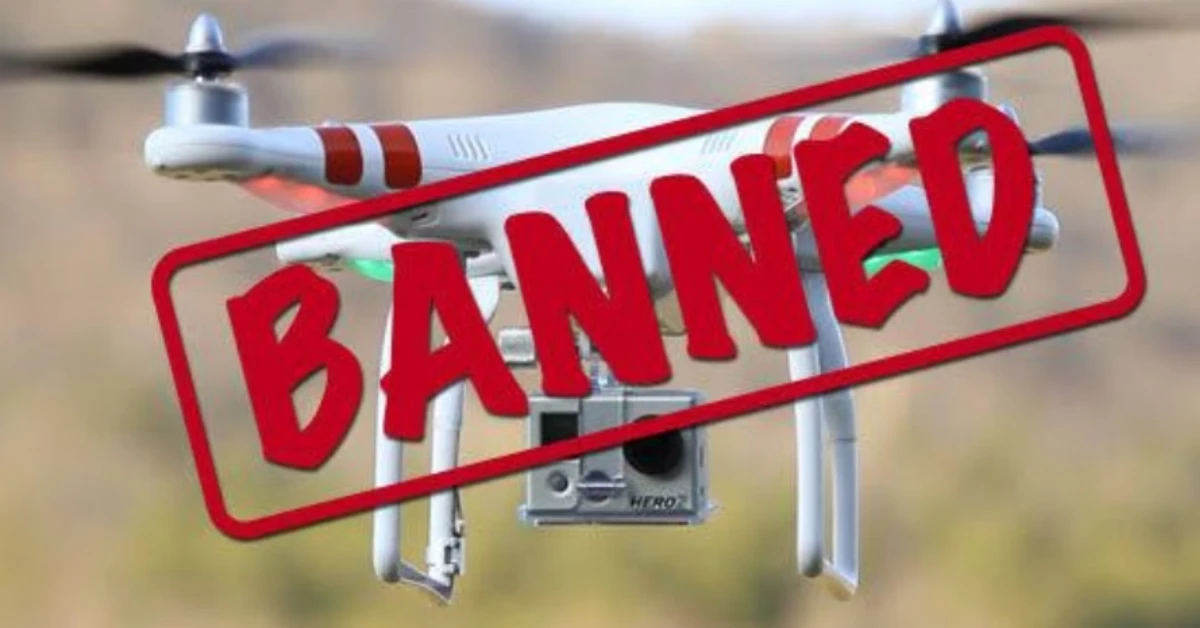The Islamabad Capital Territory (ICT) administration has announced a complete ban on drones and other Unmanned Aerial Vehicles (UAVs) for a period of two months. The decision, which comes under Section 144 of the Criminal Procedure Code (CrPC) 1898, was issued by Additional District Magistrate Sahibzada Muhammad Yousaf. The restriction applies to all individuals and organizations, except for law enforcement agencies and the ICT administration itself.
Why the Ban Was Imposed
According to the official notification, UAVs such as drones, phantoms, and quadcopters pose potential threats to public safety. Authorities warned that these devices could be misused for aerial surveillance or even targeted attacks on sensitive locations within the capital. Such activities, they cautioned, could compromise the security of residents, disrupt public order, and put critical installations at risk.
Security experts highlight that UAVs can be equipped with cameras or other payloads, making them a potential tool for malicious actors. Given Islamabad’s status as the political and administrative hub of Pakistan, with numerous government buildings, foreign embassies, and military installations, the risk is particularly high.
Link to Muharram Security Measures
The timing of the ban is directly linked to the heightened security measures in place for Muharram processions. Authorities are taking no chances during this sensitive period, implementing measures to prevent any aerial monitoring, filming, or disruption of religious gatherings.
Local media reports suggest that over 30,000 security personnel have been deployed across Islamabad, including members of the Islamabad Police, Special Branch, and traffic officials. Surveillance operations are being coordinated through the Safe City Central Control Room, where officials will monitor live feeds from CCTV cameras placed along procession routes.
As part of these arrangements, key routes will be sealed, and movement will be tightly controlled to ensure the safety of participants. Officials believe that banning drones during this time will help eliminate one possible avenue for sabotage or intelligence gathering.
Duration, Enforcement, and Legal Consequences
The ban officially took effect on July 18, 2025, and will remain in force for two months. Authorities have made it clear that violating the directive will result in legal consequences under the provisions of the CrPC. Even after the order expires, any ongoing investigations or court proceedings related to violations will continue.
The administration has also urged citizens to cooperate with law enforcement and report any suspicious drone activity. Those caught operating drones in violation of the ban could face fines, confiscation of equipment, and possible imprisonment depending on the severity of the breach.
Not the First Time
This is not the first time Islamabad has imposed such a restriction. In 2019, a similar two-month ban was enforced amid rising security concerns. Since then, temporary bans have been introduced during other sensitive occasions, reflecting the government’s growing caution about the misuse of UAV technology.
While drones have legitimate uses in fields such as photography, journalism, agriculture, and emergency response, the authorities argue that the risks during high-alert periods outweigh the benefits.
Balancing Security and Technology
Security analysts believe that while such bans are sometimes necessary, there should also be a long-term regulatory framework for drone usage in Pakistan. Licensing, mandatory registration, and GPS-based flight restrictions could allow for safe use while preventing misuse.
For now, however, Islamabad’s skies will remain off-limits to drones until mid-September, as the city prioritizes safety over convenience.
With large-scale security deployments already in place and advanced surveillance measures active, officials hope the restrictions will ensure a peaceful and incident-free Muharram period.

Hi, I’m Hussain, co-founder and editor at TezzLive.com. I have a deep passion for current affairs and a strong belief in the power of fast, accurate, and honest journalism. My goal is to bring you the latest news from around the world with clarity and responsibility.
With several years of experience in digital media and content writing, I focus on delivering stories that matter – whether it’s politics, economy, social issues, or breaking headlines. At TezzLive, we work hard to ensure that you stay informed with real-time updates and trustworthy reporting.


